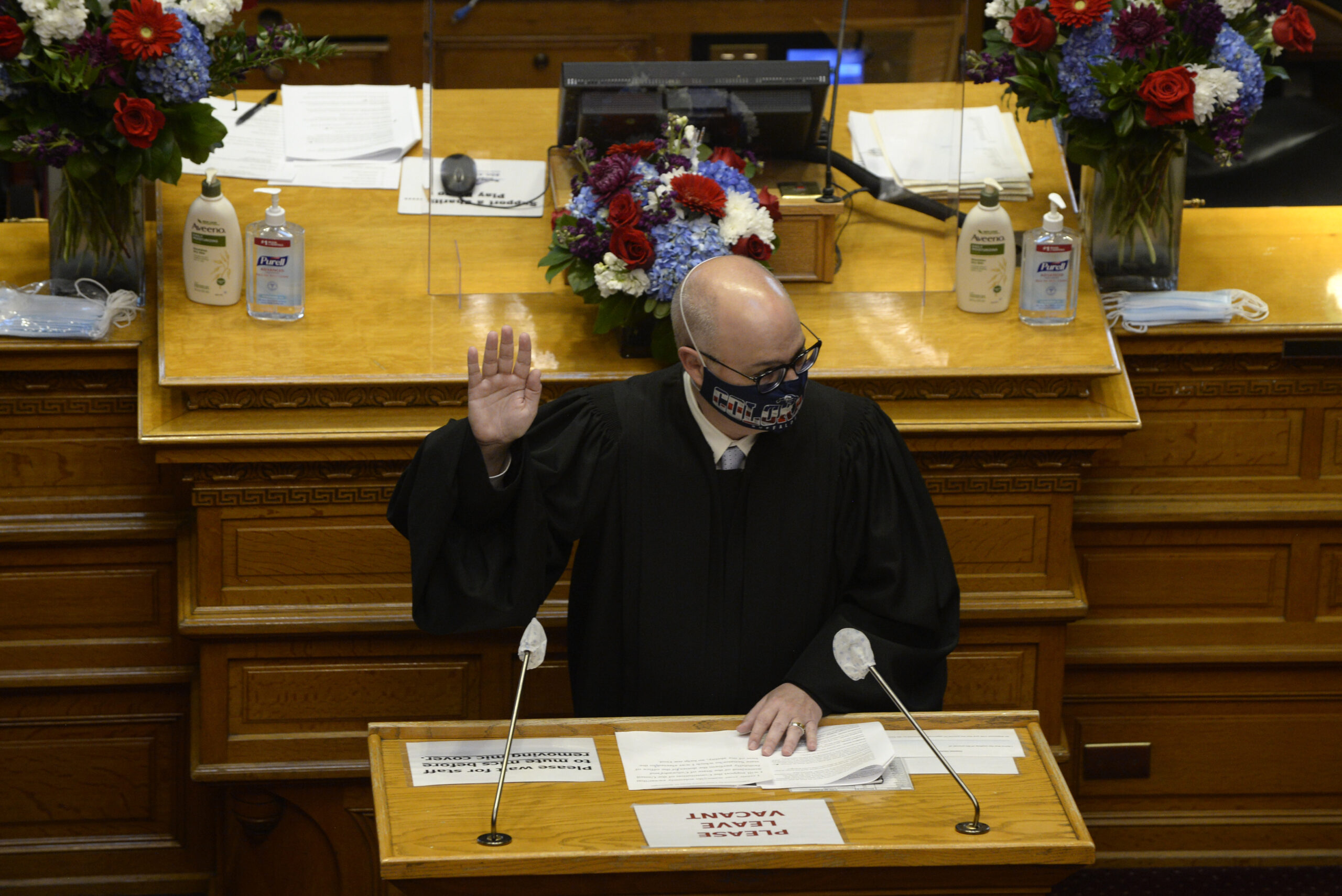COURT CRAWL | First Amendment decisions, priorities for Colorado’s justice agencies

Welcome to Court Crawl, Colorado Politics’ roundup of news from the third branch of government. A handful of First Amendment cases got their day in federal court, while state lawmakers heard about the priorities and activities of Colorado’s judicial branch and related agencies as part of their annual oversight hearings.
School-based speech, religious exercise and more
? The First Amendment, for the uninitiated, protects the right to religious exercise, speech, the press, assembly and petitioning the government. But sometimes legitimate government interests bump up against those rights, and courts decide whether infringement is acceptable in those scenarios. A handful of recent cases illustrated that tension:
? The U.S. Court of Appeals for the 10th Circuit found a college student in Denver had clearly alleged a First Amendment violation when a school administrator prohibited her from talking about her professor with other students. Although Metropolitan State University of Denver will get the chance to explain why the administrator acted the way he did, one 10th Circuit judge felt the student’s communications about her professor were “perfectly appropriate.”
? There have been many cases at the appellate level affirming the right to speak – even profanely – about the police. A federal judge determined that it’s possible a man in Colorado Springs was seeking to distract officers from their duties by yelling “f— the police” at them, in which case his speech wouldn’t be protected. On the other hand, it’s also possible that the officers arrested him solely because he used the F-word, which would, in fact, be problematic under the First Amendment. Now a jury will decide the issue.
? A group of anonymous staff and students at the University of Colorado’s Anschutz Medical Campus asked a federal judge to block the school’s vaccination policy, citing religious objections to the COVID-19 vaccine. U.S. District Court Judge Raymond P. Moore, in rejecting that request, had this to say about the balance between public health and religious liberty: “It is simply not the case that a medical campus is required to put patients and others in a healthcare environment at risk to accommodate these plaintiffs.”

? Finally, the 10th Circuit tossed a challenge to Colorado’s COVID-19 restrictions circa late 2020. Because the state has let nearly all of those mandatory public health measures lapse, and has not reinstated them despite the omicron surge, the court found that two churches asserting their religious exercise rights no longer had a case.
Justice agencies update the General Assembly
? As part of their annual oversight hearings, the Colorado Supreme Court, attorney general, public defender and others trekked to the state capitol to update legislators on their activities. Here is a very short version of last week’s hearing.
Supreme Court: Chief Justice Brian D. Boatright said the results of the independent investigations into the judicial branch will be made public, and indicated the trial courts still haven’t reached their pre-COVID level of jury trials.
Commission on Judicial Discipline: They are asking for funding that doesn’t rely on the judicial branch for approval, and Boatright indicated he supports that request.
Attorney General: Phil Weiser discussed ongoing efforts to go after fentanyl distributors, a need for mental health and trauma support for police, and the potential for COVID-19-related fraud.
State Public Defender: Megan Ring indicated a need for paralegals and IT upgrades, and foreshadowed a need for salary increases in the future.
Access to Justice Commission: In a first-ever appearance before the legislature, a commission representative alerted lawmakers to various hurdles, especially in rural areas, to people navigating the state’s civil justice system.

Criminal charges novel, but not unprecedented
? A federal grand jury indicted Denver-based DaVita and its ex-CEO, Kent Thiry, with criminal offense stemming from alleged agreements not to solicit or recruit employees from competitor companies. The defense argued that such charges were unprecedented, while the government maintained that this was flat-out anticompetitive conduct in violation of the Sherman Antitrust Act of 1890. A federal judge agreed with the prosecution last week.
? “The fact that defendants allegedly allocated the market in a novel way – by using a non-solicitation agreement – does not matter. Defendants had ample notice that entering a naked agreement to allocate the market would expose them to criminal liability, however they did it.” -U.S. District Court Senior Judge R. Brooke Jackson
Vacancies and appointments
? The governor will appoint one of two finalists to the Cheyenne County Court to succeed Judge Gerald Keefe, who is resigning: Jeremy Boyce of Greeley and Deni Eiring of Cheyenne Wells.
? Colorado’s presiding disciplinary judge, William R. Lucero, is retiring at the end of May, and the state Supreme Court will appoint his successor. The position is responsible for deciding attorney discipline and disability issues, as well as problems relating to the unauthorized practice of law. The deadline to apply is Feb. 22.
Miscellaneous decisions
? The 10th Circuit last summer decided Colorado Springs police used an unconstitutionally-broad warrant to seize firearm evidence, but sent the case back to the trial court to determine if an exception to the Fourth Amendment could still have validated the officers’ conduct. The judge decided that yes, the exception did apply.
? A federal judge declined to block the Biden administration’s rule raising minimum wages to $15 for federal contractors, rejecting an argument from outdoor recreation companies operating in Colorado who claimed Biden exceeded his authority.
? A magistrate judge ordered Hyatt to produce the names of guests who stayed at a Boulder hotel in November 2018 when carbon monoxide levels were dangerously high. But Hyatt succeeded in getting a district judge to put that directive on hold.
? In a lawsuit over Denver’s police response to the 2020 racial justice protests, a judge has upheld some of the city’s redactions to internal memos based on interviews with officers, while disagreeing with other redactions.














